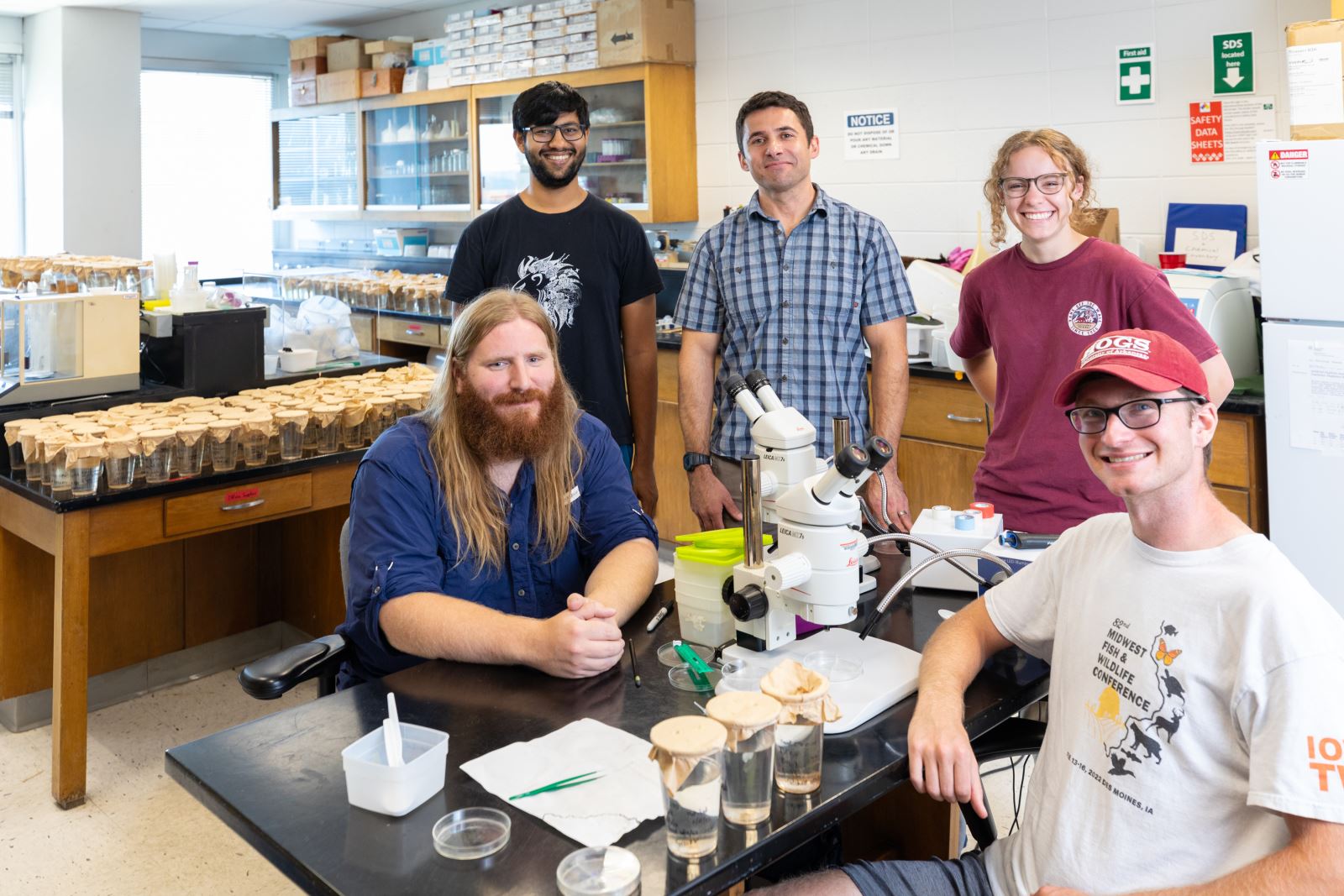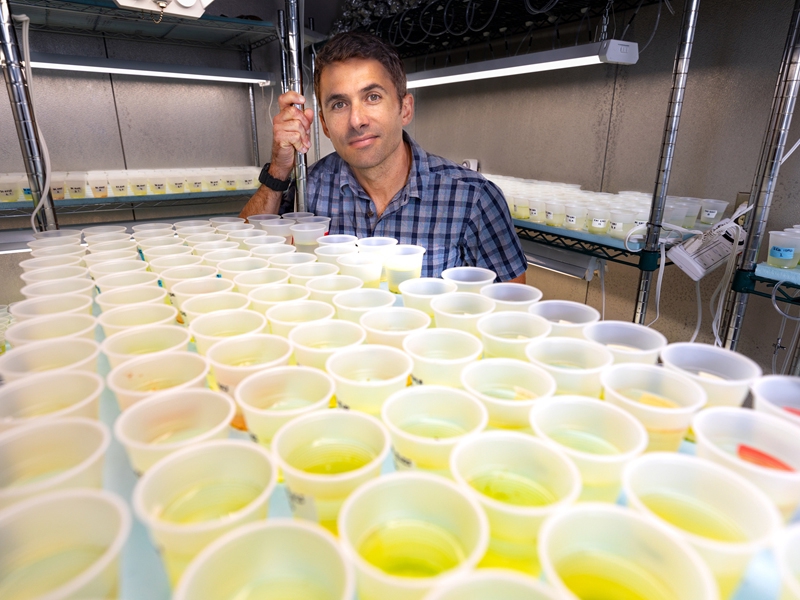As the hottest summer in human memory continues to smash records, it’s becoming increasingly clear that climate warming is going to get worse before it gets better. Understanding and anticipating its consequences, whether it’s accelerating fish dieoffs or threatening rice yields, will be imperative.
To gain more insight into the effect of climate change on biodiversity, the National Science Foundation awarded $925,711 to Adam Siepielski, associate professor of biological sciences. The grant will be used to support experiments on freshwater damselflies to develop an understanding of how climate warming affects trade-offs between competition and predation.
“Damselflies are a good group of species to test these ideas because they are small, abundant, and easy to work with in the lab and field,” Siepielski explained. “From decades of previous work we know a lot about their ecology and evolution, which allows us to make very specific predictions about how climate warming may affect them.”
 |
| From L-R: Taylor Ping, Shantanu Joshi, Adam Siepielski, Caitlyn Ramaker, Dylan Powell |
In his proposal, Siepielski notes that no single species can simultaneously be best at everything it has to do to survive. Excelling at one facet of life often means compromising on another.
For example, species that are better at avoiding predators are often poorer competitors, in the sense that they reproduce less. Likewise, species that are strong competitors are often bad at avoiding predators. This trade-off helps maintain biodiversity in communities since it prevents any one species from dominating.
However, competition and predation are sensitive to temperature and not all species may respond identically to warming. Consequently, the trade-off between competition and predator avoidance would be expected to change in a warming climate. Altering this trade-off may result in a loss of biodiversity and critical ecosystem services.
Siepielski’s grant will be used to perform experiments on freshwater damselflies to develop a mechanistic understanding of how climate warming affects trade-offs between competition and predation. The experiments will be followed by a quantitative genetic study that will assess the genetic basis of the traits involved in the trade-off. Lastly, the project will use field experiments to test how warming affects species coexistence in large mesocosms, which are experimental conditions designed to reproduce the natural world as closely as possible.
The project will train future K-12 science educators in scientific inquiry. Additionally, it will involve undergraduate students in research and will teach graduate students about modern research techniques. Together, the education and scientific training will provide opportunities for citizens to think critically about why biodiversity is being altered on our warming planet.
About the University of Arkansas: As Arkansas' flagship institution, the U of A provides an internationally competitive education in more than 200 academic programs. Founded in 1871, the U of A contributes more than $2.2 billion to Arkansas’ economy through the teaching of new knowledge and skills, entrepreneurship and job development, discovery through research and creative activity while also providing training for professional disciplines. The Carnegie Foundation classifies the U of A among the few U.S. colleges and universities with the highest level of research activity. U.S. News & World Report ranks the U of A among the top public universities in the nation. See how the U of A works to build a better world at Arkansas Research and Economic Development News.
Topics
Contacts
Adam Siepielski, associate professor of biological sciences
Fulbright College of Arts and Sciences
479-575-6357,
Hardin Young, assistant director of research communications
University Relations
479-575-6850,
